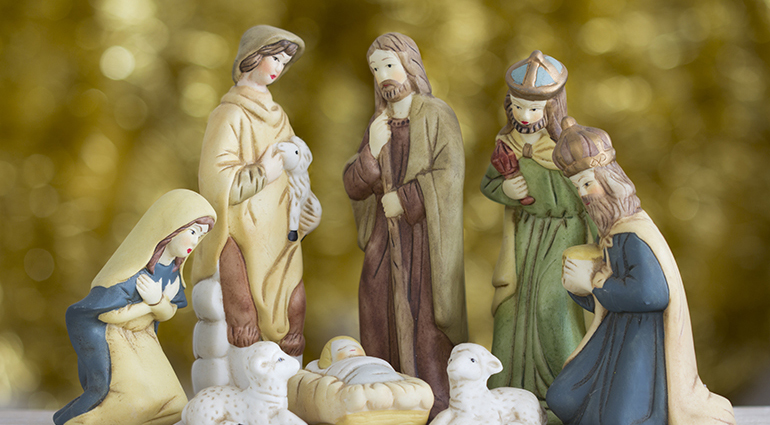One Name
At the name of Jesus every knee should bow, in heaven and on earth and under the earth. Philippians 2:10
Cleopatra, Galileo, Shakespeare, Elvis, Pelé. They are all so well known that they need only one name to be recognized. They have remained prominent in history because of who they were and what they did. But there is another name that stands far above these or any other name!
Before the Son of God was born into this world, the angel told Mary and Joseph to name Him Jesus because “he will save his people from their sins” (Matthew 1:21), and “he . . . will be called the Son of the Most High” (Luke 1:32). Jesus didn’t come as a celebrity but as a servant who humbled Himself and died on the cross so that anyone who receives Him can be forgiven and freed from the power of sin.
The apostle Paul wrote, “God exalted him to the highest place and gave him the name that is above every name, that at the name of Jesus every knee should bow, in heaven and on earth and under the earth, and every tongue acknowledge that Jesus Christ is Lord, to the glory of God the Father” (Philippians 2:9–11).
In our times of greatest joy and our deepest need, the name we cling to is Jesus. He will never leave us, and His love will not fail.
INSIGHT
God, who exists eternally in three Persons—the Father, the Son, and the Holy Spirit—has a variety of names that describe His attributes, including Good Shepherd, Lion of Judah, Lamb of God, Prince of Peace, Almighty God, Strong Tower, and Comforter. Yet here in Philippians 2 Jesus is called the “name that is above every name” (v. 9). Paul, the author of Philippians, goes on to say that at the sound of His name “every knee should bow, in heaven and on earth and under the earth” (v. 10). Why this enthusiastic praise for the name of Jesus? It’s because of who He is, what He left behind, and what He accomplished. Jesus, the Son of God, left the magnificence of heaven and the presence of His Father and humbled Himself by taking on “human likeness” and “becoming obedient to death” (vv. 7–8). Thus humbled, Jesus was “exalted . . . to the highest place” and given the name above all names (v. 9). He died and rose again because of His love for us and is deserving of our praise and the overflowing joy it expresses.
Whom can you tell about Jesus?









